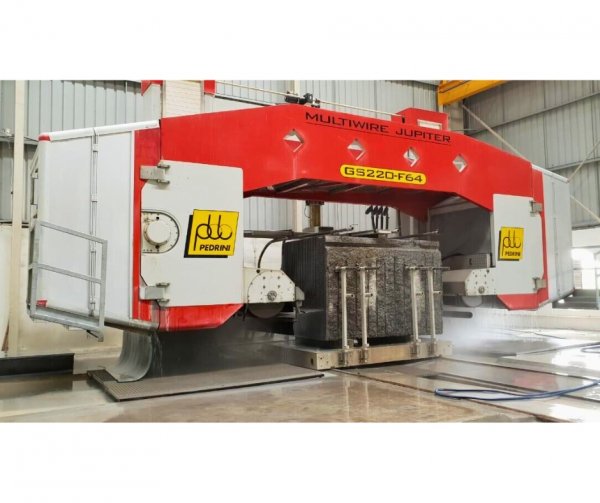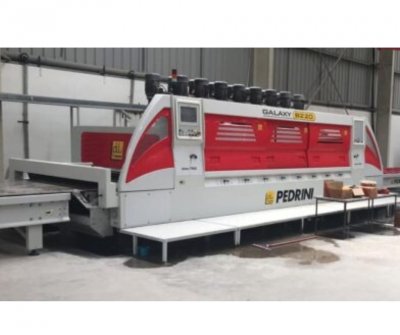Various Machinery Types for Processing Natural Stone
Various Machinery Types Processing natural stone is a meticulous and intricate task that requires specialized machinery to ensure precision and efficiency. Granite factories employ a variety of equipment to cut, shape, and finish stone for both construction and decorative purposes. Curious about the tools behind natural stone processing? Here's an overview of the key machinery used in granite manufacturing.
Modern granite processing also reflects the growing focus on sustainability and accuracy. Automatic slab polishers streamline the polishing process, reduce waste, and provide a uniform finish. Calibration machines ensure that tiles and slabs are perfectly leveled, making them ready for installation with minimal effort. Together, these machines showcase the technological advancements that have transformed the granite industry, making natural stone more versatile, efficient, and accessible for a wide range of applications.
What is Granite Manufacturing?
Granite, a natural stone, is quarried from the earth in large blocks. However, these blocks are not ready for immediate use in construction. They must go through several steps, including cutting to specific sizes, polishing, finishing, and shaping. This is where advanced machinery becomes essential.
Granite manufacturers, such as Regatta Granites India, play a key role in this process. With in-house manufacturing units across North and South India, they have the expertise and equipment to process granite efficiently. Let's explore the essential machinery used in granite processing.
1. Jumbo Granite Gangsaw
As the name implies, the Jumbo Granite Gangsaw is designed to cut large granite blocks into gangsaw slabs. This heavy-duty machine operates with high precision, positioning granite blocks on a platform that moves beneath a fast-spinning blade to produce slabs.
Also called a diamond row saw or granite frame saw, it uses multiple diamond blades, usually between 60 and 120, to ensure straight cuts, high-quality finishes, and optimized output. Despite its high cost and complex installation, the Jumbo Granite Gangsaw is essential for large-scale granite processing.

2. Multi-Block Cutter
The multi-block cutter, equipped with up to nine diamond circular saw blades, efficiently slices granite blocks into slabs of different thicknesses. Built with durable steel and cast iron, it ensures stability and precision during the cutting process.
For instance, This machine incorporates advanced components, including a linear motion guide and ball screw, allowing for quick and accurate adjustments. Additionally, its lubrication system lowers maintenance costs and improves performance, delivering precise cuts while minimizing wear and tear.
3. Automatic Slab Polishers
Automatic slab polishers are designed to enhance the surface finish of granite slabs. Operators place the slabs on specialized platforms while the polishing arm moves across the surface, applying a consistent and smooth finish.
Consequently, Modern automatic polishers incorporate advanced technology, allowing the spindles to move freely and cover the entire slab efficiently. This innovation not only boosts polishing productivity but also reduces material waste, helping granite exporters maximize the use of each slab while lowering overall costs.

4. Calibration Machine
Calibration machines play a vital role in ensuring granite slabs and tiles meet exact thickness specifications. They feature custom-designed spindles and automated calibrating heads for precise operation.
In addition, These machines can adjust to different tile sizes without frequent changes to diamond tools, making them highly efficient for producing uniformly calibrated tiles. Available in various sizes, calibration machines deliver consistent and accurate results for all granite processing needs.
5. Bridge Cutter
Moreover, Bridge cutters are essential for processing granite countertops and other custom stone products. This machine uses a water-cooled diamond blade to cut slabs into desired sizes and shapes.
The water cooling prevents the granite from chipping or cracking during the cutting process. Once the slabs are cut, stonemasons use handheld tools to shape and polish the edges, creating a finished product ready for installation.
Conclusion
Granite manufacturing is a meticulous process that involves the use of specialized Various Machinery Types to transform raw stone blocks into beautifully finished products for construction and décor. In contrast, Each machine, from the Jumbo Gangsaw for cutting massive blocks into slabs to the Bridge Cutter for precise countertop shaping, plays a critical role in ensuring accuracy, efficiency, and superior output.

